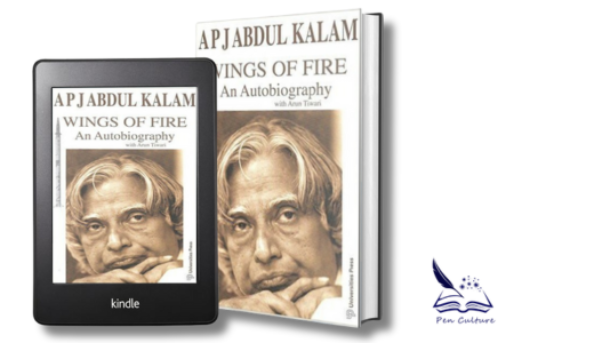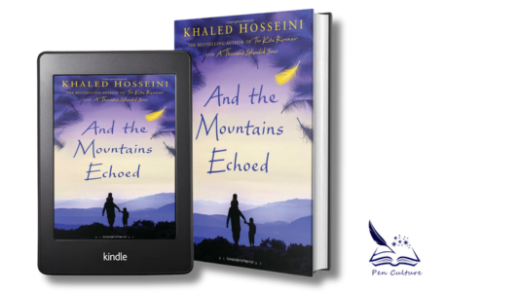Wings of Fire is the autobiography of Dr. A.P.J. Abdul Kalam, co-authored by Arun Tiwari, and published in 1999. This inspiring book chronicles Dr. Kalam’s journey. He started from his modest beginnings in a small village. He became one of India’s most celebrated scientists and its 11th President. It is a testament to perseverance, passion for science, and dedication to one’s country. This book is a must-read for students and aspiring professionals.
Plot Summary
The book is divided into four sections: Orientation, Creation, Propagation, and Contemplation—each marking different phases of Dr. Kalam’s life.
- Orientation covers his early life in Rameswaram, Tamil Nadu. His family, teachers, and early experiences fueled his curiosity and discipline.
- Creation recounts his education and early career. It especially highlights his contributions to the Indian Space Research Organization (ISRO). It also covers the development of India’s first satellite launch vehicle (SLV).
- Propagation highlights his leadership in missile development programs like Agni and Prithvi. These programs earned him the title “Missile Man of India.”
- Contemplation is a reflective section where Dr. Kalam shares his spiritual beliefs and thoughts. He talks about leadership, teamwork, and India’s future. This inspires young readers to dream big and work hard.
Characters and Themes
The central character is, of course, Dr. Kalam himself, whose life exemplifies hard work, humility, and an unyielding commitment to India’s progress. Mentors like Dr. Vikram Sarabhai and Dr. Satish Dhawan play pivotal roles in shaping his professional journey.
Key themes in the book include ambition, perseverance, and patriotism. Dr. Kalam emphasizes the importance of dreaming big and the power of teamwork. He also stresses self-reliance. This is particularly important for India’s defense and technology sectors. His spiritual beliefs are also interwoven throughout the narrative, reflecting a unity between science and spirituality.
Writing Style and Appeal
The language of Wings of Fire is simple, making it accessible to a broad audience, especially young readers. Despite the technical nature of many topics, the book remains engaging with its mix of scientific achievements and personal reflections. Dr. Kalam’s philosophical musings lend a poetic tone, especially in the latter parts of the book.
The book holds broad appeal for students, aspiring scientists, and young professionals. It serves as both an inspirational guide. It also provides an insightful account of India’s space and missile programs.
Strengths
- Inspiration: The book’s ability to inspire is its biggest strength. Dr. Kalam’s journey started with humble beginnings. He transformed India’s space and missile programs. His story is motivational for anyone facing challenges or obstacles.
- Leadership and Teamwork: Dr. Kalam’s emphasis on the importance of teamwork, leadership, and perseverance offers valuable lessons for professionals in any field.
- Accessibility: The simple and clear language makes the book accessible to a wide range of readers. This is true regardless of their background in science or technology.
- Philosophical Depth: Dr. Kalam’s reflections on life, spirituality, and the balance between science and faith add a thoughtful aspect to the narrative. These reflections also add a meditative layer.
Weaknesses
- Technical Details: For some readers, the detailed descriptions of missile and space technology feel too niche. They also feel overwhelming, especially if they’re not familiar with the topic matter.
- Focus on Professional Life: The book centers more on Dr. Kalam’s professional achievements, offering fewer personal anecdotes or intimate stories. Readers looking for a deeper exploration of his personal life feel this aspect is lacking.
Conclusion
Wings of Fire is a profoundly motivating autobiography. It offers a glimpse into the life of a man who rose from humble beginnings. He transformed India’s space and missile programs. It is a story of resilience, ambition, and patriotism. It is a must-read for students and professionals alike who aspire to contribute meaningfully to their country or field.
Rating: 4.5/5




